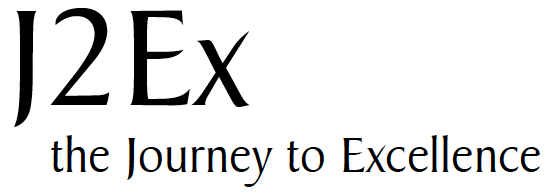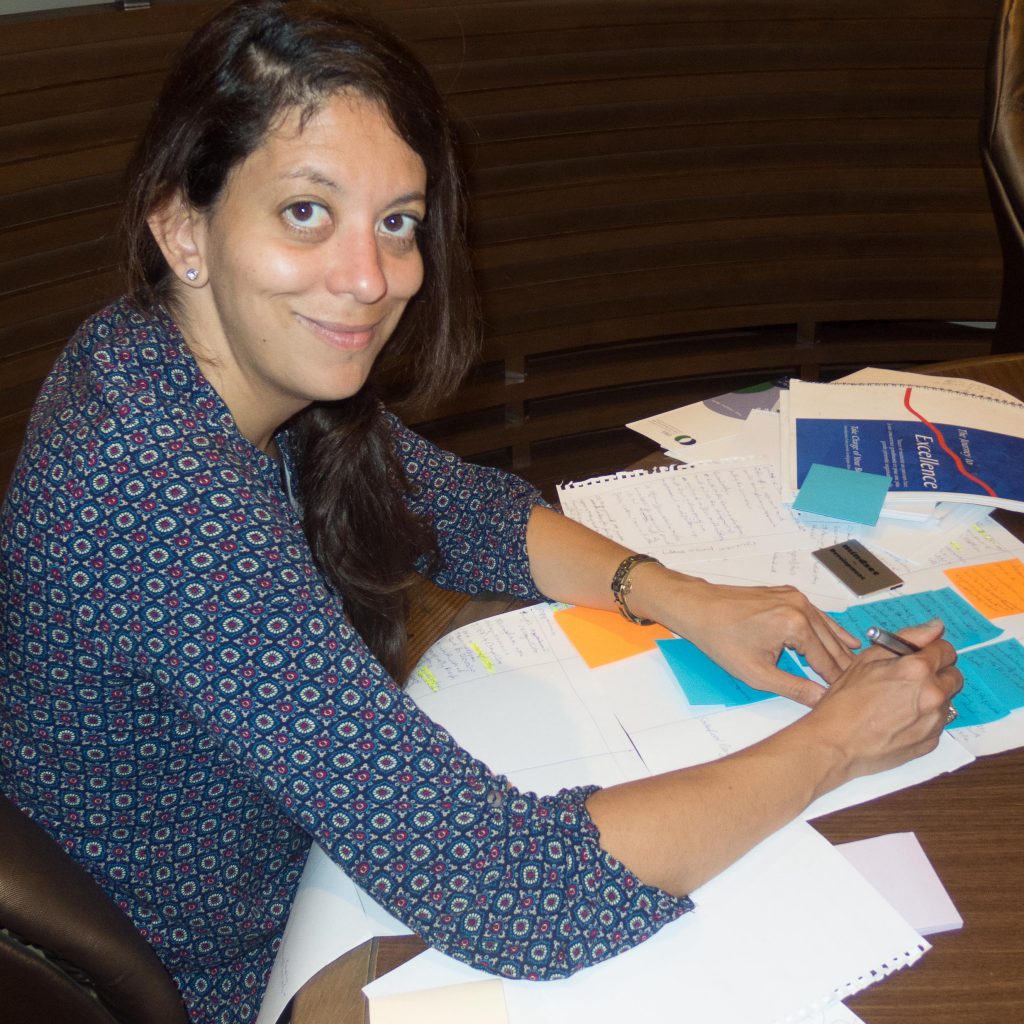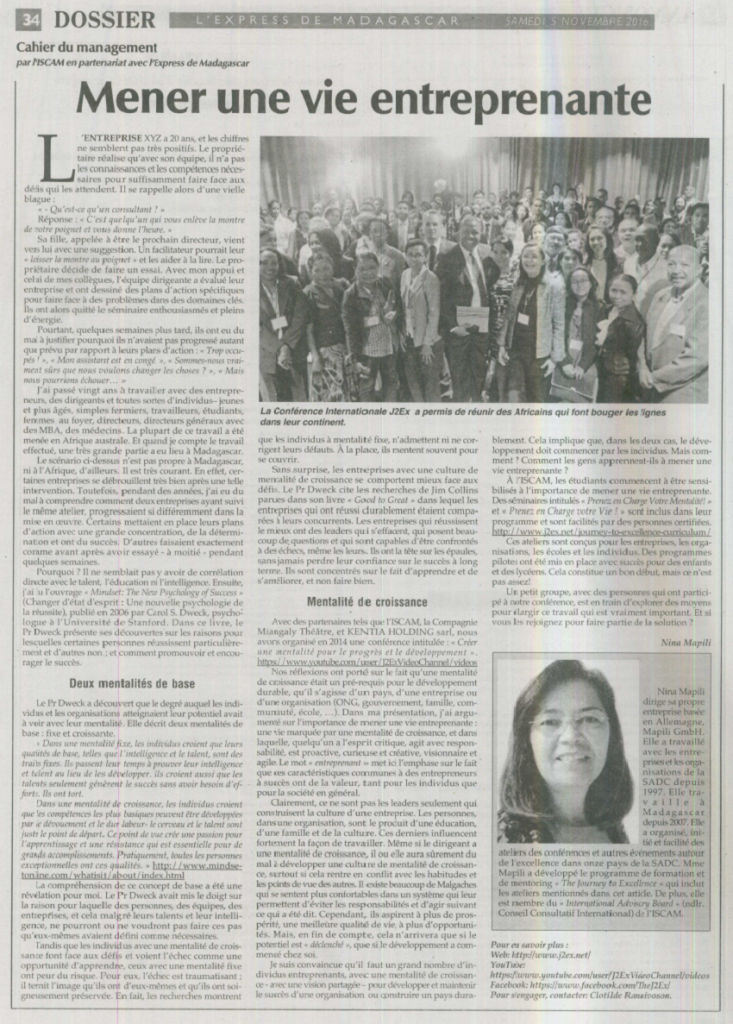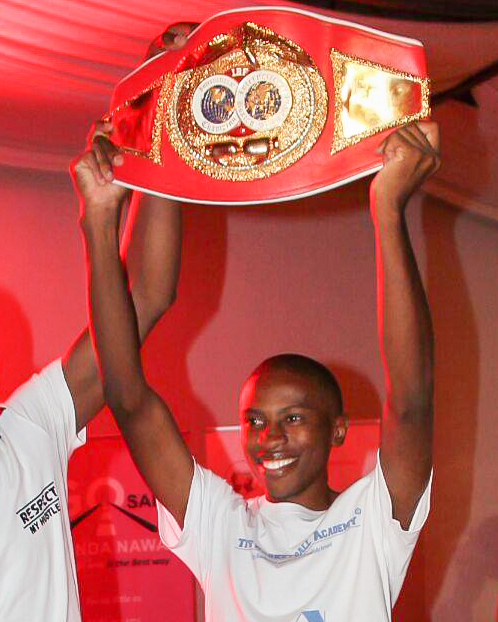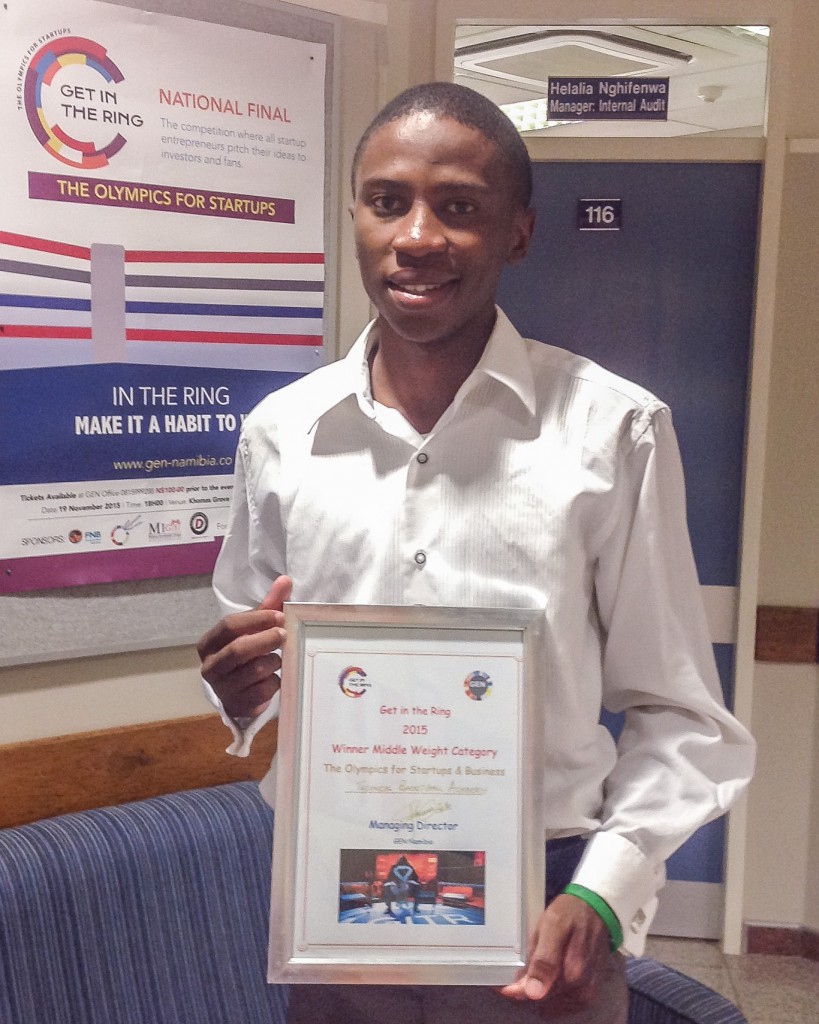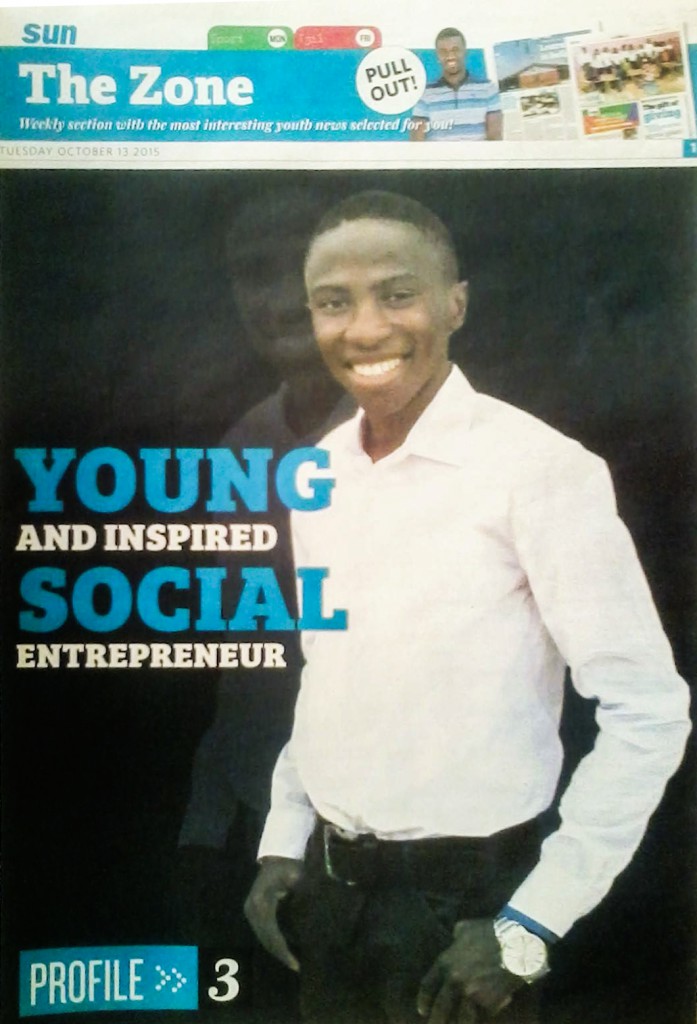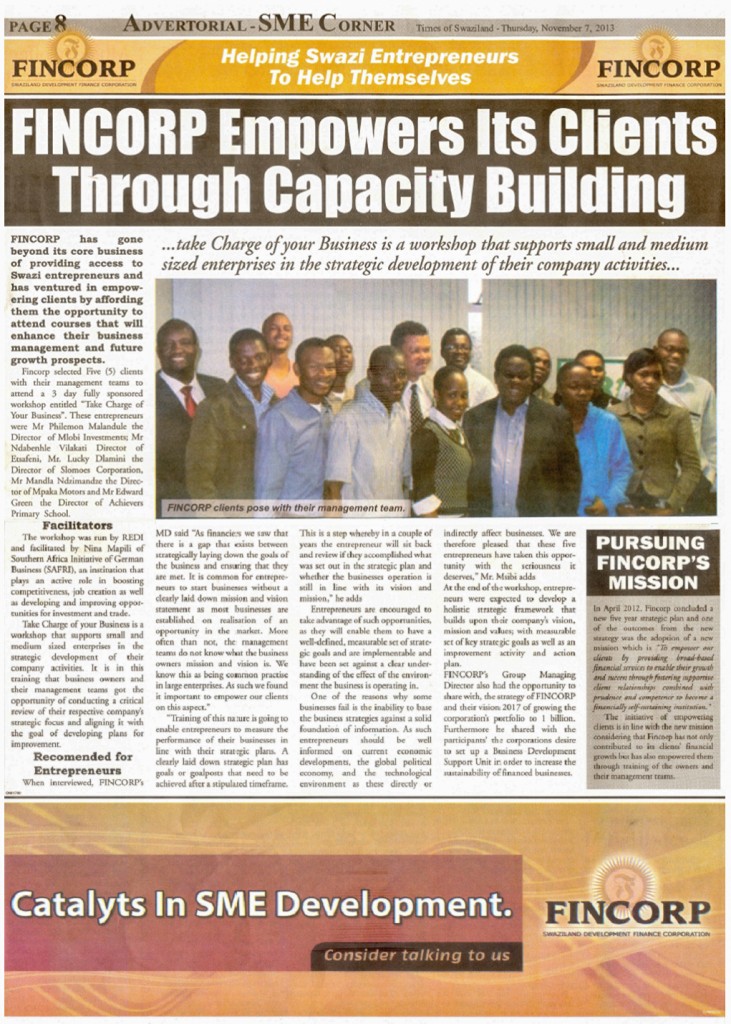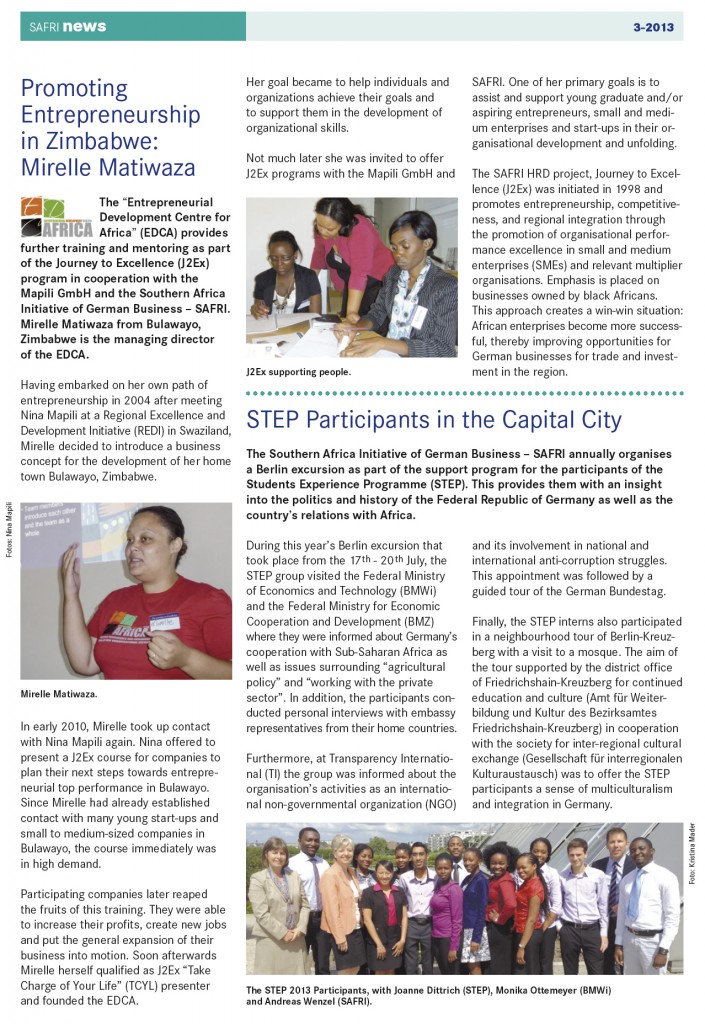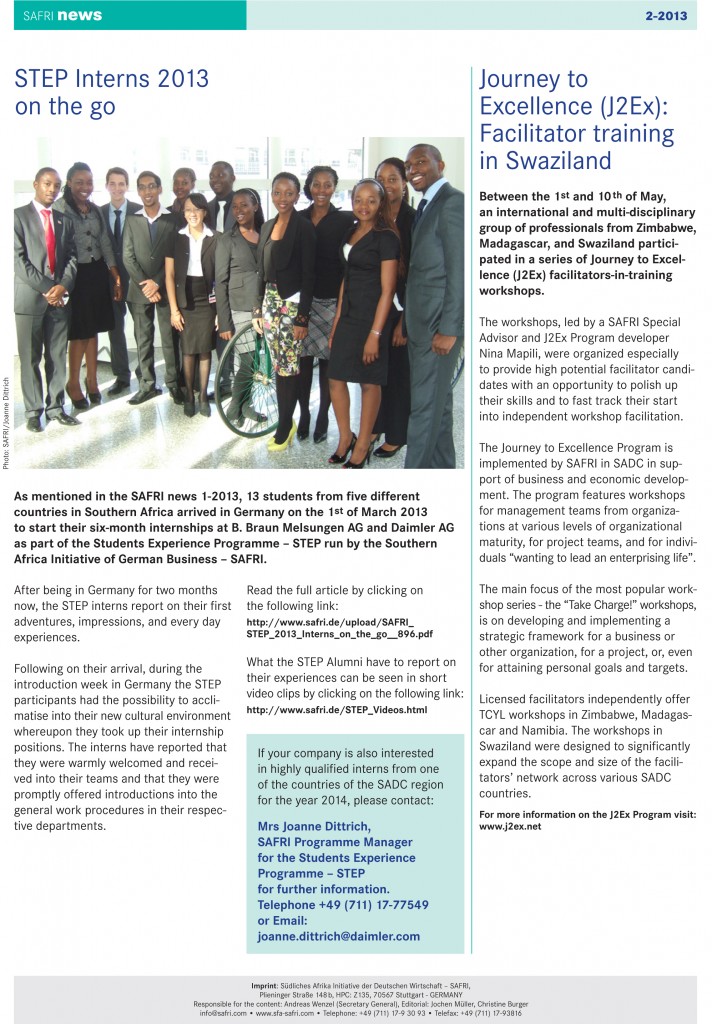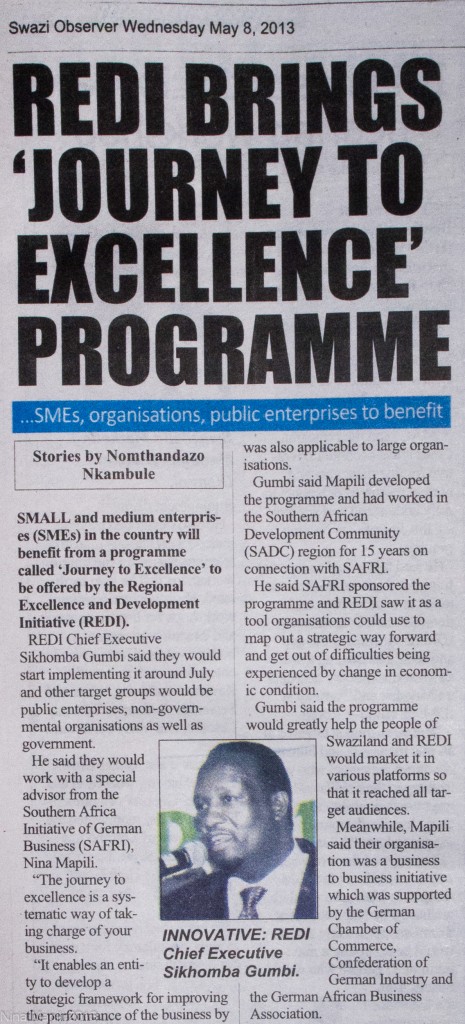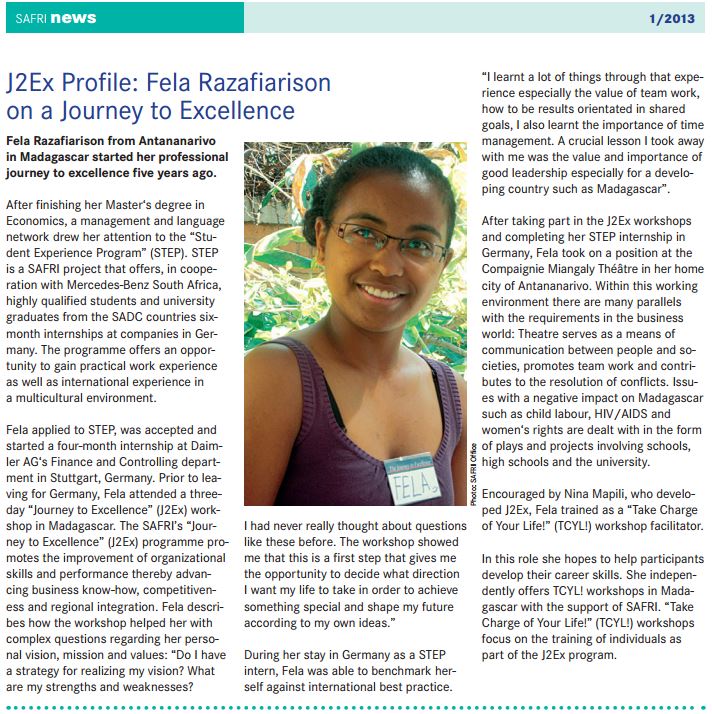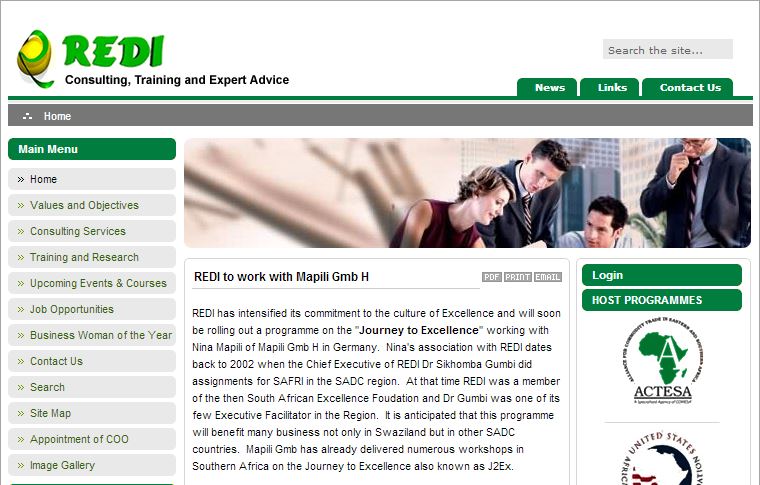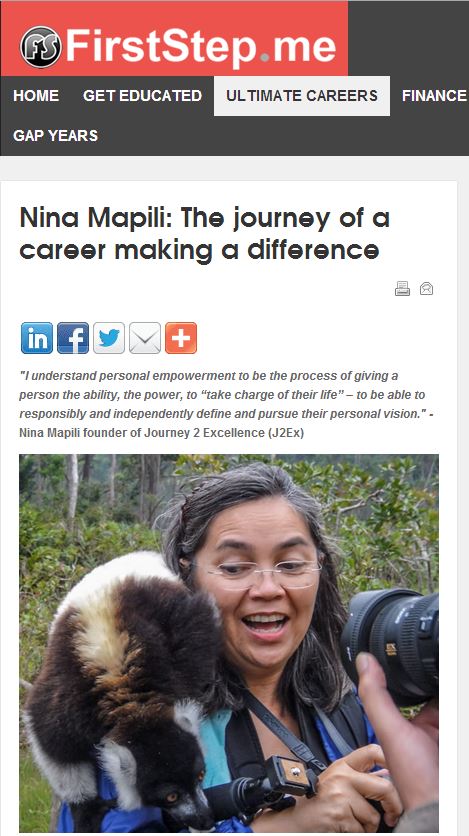Who’s talking about us?
Globe spanning mentoring
Late in 2015, Journey to Excellence Program Developer Nina Mapili began mentoring Moroccan education entrepreneur Jihane Laraichi through a German program called Ouissal, which aims to promote economic growth through the empowerment of female entrepreneurs. After a few days to kick-start the process in person in Casablanca, they continued with regular globe spanning “virtual meetings” that went on independent of their current locations. Skype, WhatsApp and Google Docs made it possible to continue the conversation between Mexico and Germany, Morocco and Japan, Paris and Switzerland and beyond.
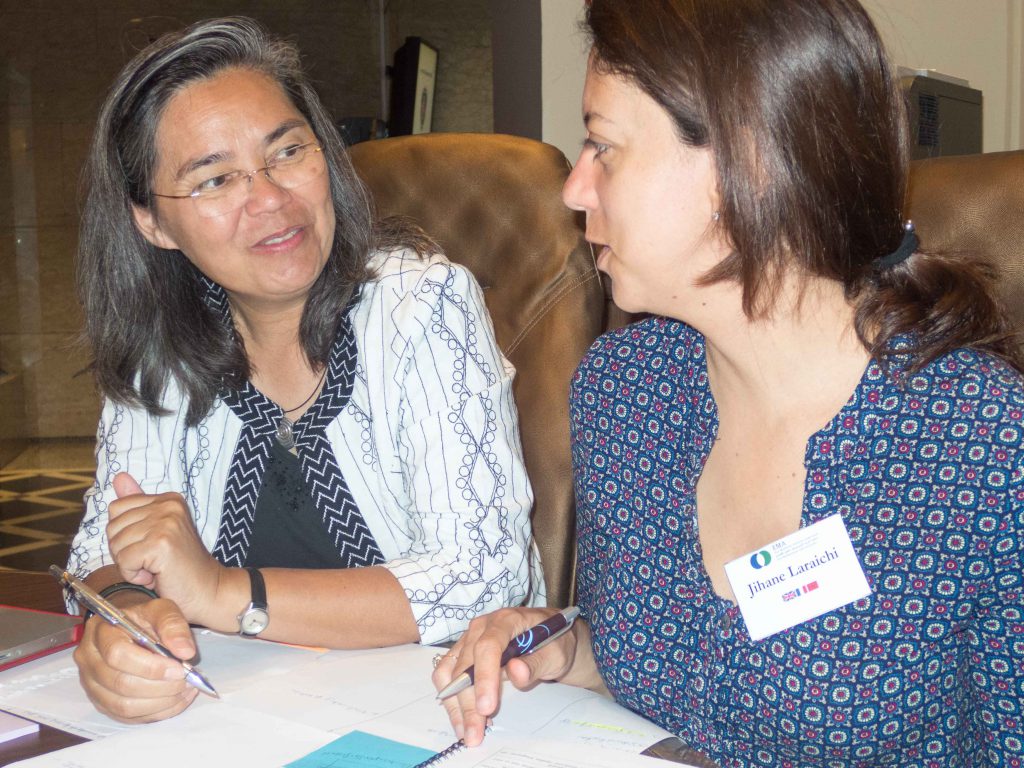
J2Ex Developer Nina Mapili begins the mentoring process with Jihane Laraichi in Casablanca, September, 2015
But does it really work?
Today this recommendation came in from Jihane, who remains in contact with Nina:
“I was mentored for a year beginning in September 2015 by Journey to Excellence Program Developer Nina Mapili as part of Ouissal, the German-Arab Mentoring Program of the Euro-Mediterranean-Arab Association.
It was a very life changing experience. She has developed over the years her own mentoring methodology which has proven to be efficient. Through this process, she helped me have a strategic approach and gave me very useful tools that I still use even after the mentoring is over. Nina is a very skilled professional, she is dedicated to what she does and very committed to helping her mentees succeed. I totally recommend her as an amazing person and her way of working as totally efficient.”
Jihane LARAICHI
Coach scolaire parentale et professionnelle
Spécialiste en stratégies d’apprentissage et orientation
Casablanca, Morocco and Paris, France
http://www.educationcm.com/annuaire/
www.youtube.com/methodologiaTV
www.facebook.com/educationcm
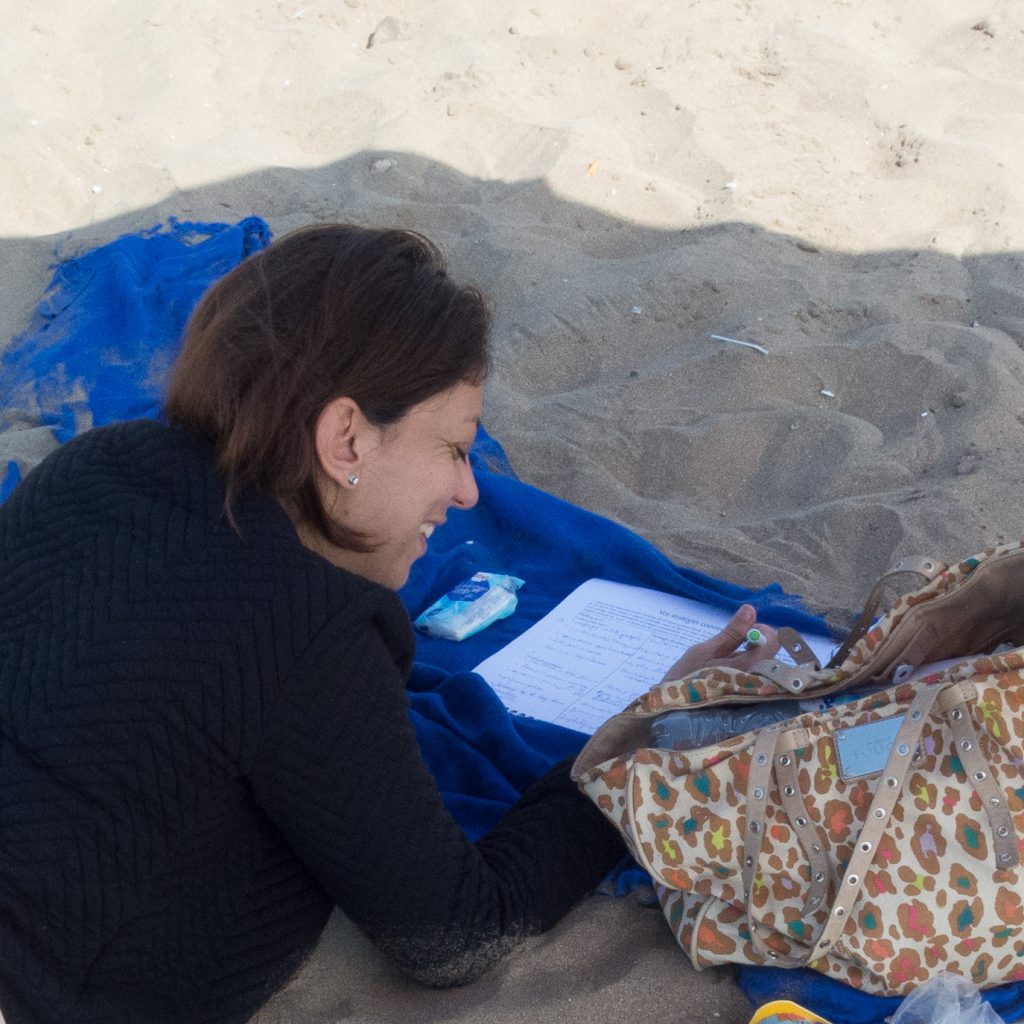
One of the advantages of one-on-one mentoring is that you can spontaneously decide to work on the beach
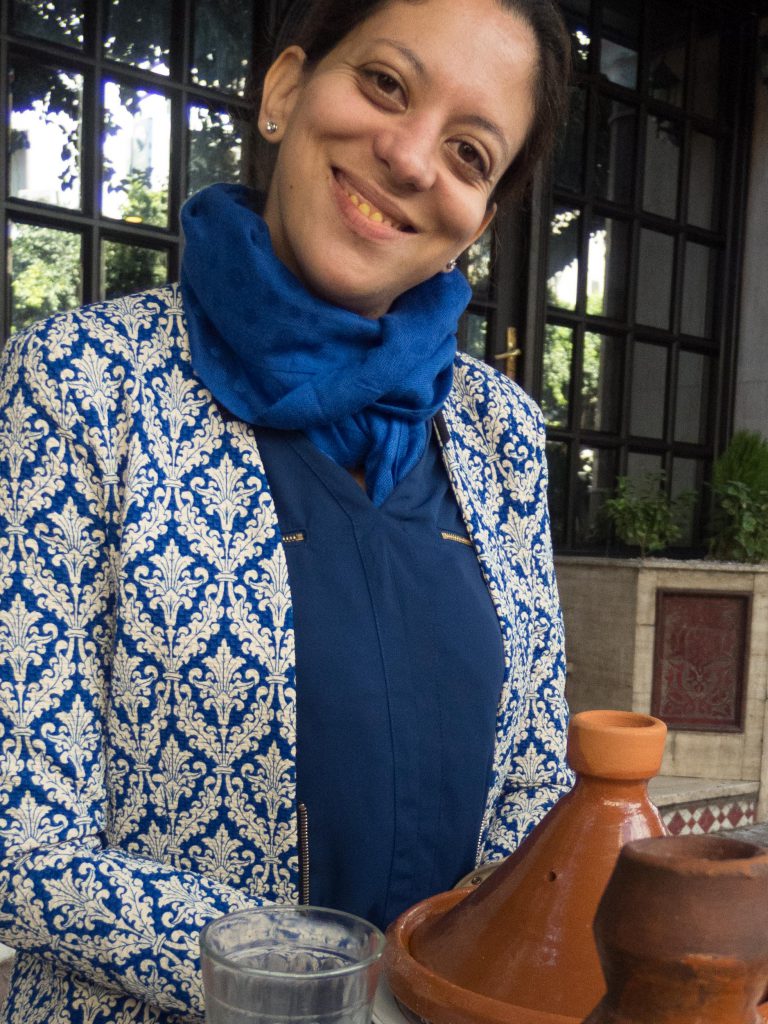
Mentoring is a two way street, and one must eat, so Jihane introduced Nina to some local culinary delights.
Lead an enterprising life!
“Lead an Enterprising Life!”, an article by Journey to Excellence program developer Nina Mapili, recently appeared in the “Cahier de Management, Express de Madagascar” as part of a series by leading Malagasy business school ISCAM. The article picks up the thread of the 2014 international conference “Creating a Mindset for Growth and Development” that her company, Mapili GmbH, organized with Malagasy partners ISCAM, “Compagnie Miangaly Théâtre” and KENTIA Holding sarl.
In the article, she argues that it takes a critical mass of enterprising, growth mindset individuals – with a shared vision – to develop and maintain a successful organisation – or a sustainable country – and emphasizes the value of leading an “enterprising life”.
Lead an Enterprising Life!
Company XYZ is 20 years old, and the numbers are not looking good. The owner realized that he and his team didn’t have the necessary knowledge and skills to sufficiently address their challenges, but he’d also remembered the old joke:
“What is a consultant?”
“Someone who takes the watch off your wrist and tells you the time.”
When his daughter – the next MD, so he hoped – came up with a suggestion whereby a facilitator would “leave the watch on their wrist” and help them read it, he decided to give it a try. With support from me and my colleagues, the management team assessed their company and crafted specific action plans to address key problem areas. They left the workshop excited and energized.
A few weeks later, though, they were having a hard time rationalizing why they hadn’t made much progress on their action plans: ‘Too busy!’, ‘My assistant is on holiday.’, ‘Are we really sure we really want to change things?’, ‘But we might fail…’
I’ve spent 20 years working with entrepreneurs, managers, and assorted individuals – young and old, simple farmers, workers, students, housewives, managers, CEOs with MBAs, medical doctors. Most of this work has been in southern Africa. Much of it, especially when counting work done by facilitators I’ve trained, has been in Madagascar.
Though the above scenario is not unique to Madagascar, or Africa for that matter, it is common. Yes, some companies do very well following such an intervention. For years, though, I struggled to understand how two companies could go through the same type of workshop and progress so differently when it came to implementation. Some worked through their action plans with great focus, determination, and ultimately success, while others just went back to “business as usual”, perhaps after a couple of weeks of half-hearted attempts.
Why? There didn’t seem to be a close correlation with talent, education or intelligence. Concepts such as “learning organisation” and “company culture” had something to do with it, but didn’t really cut to the core. Then I read “Mindset: The New Psychology of Success”, published in 2006 by Stanford University psychologist Carol S. Dweck. In her book, Prof. Dweck outlines her findings from decades of research into why specific people succeed and others don’t, and how to promote or foster success.
Prof. Dweck discovered that the degree to which people and organisations achieve their potential correlates with their mindset. She describes two basic types of mindset: fixed and growth.
“In a fixed mindset, people believe their basic qualities, like their intelligence or talent, are simply fixed traits. They spend their time documenting their intelligence or talent instead of developing them. They also believe that talent alone creates success—without effort. They’re wrong.
In a growth mindset, people believe that their most basic abilities can be developed through dedication and hard work—brains and talent are just the starting point. This view creates a love of learning and a resilience that is essential for great accomplishment. Virtually all great people have had these qualities.”
http://www.mindsetonline.com/whatisit/about/index.html
Understanding this basic concept was a lightbulb moment for me! Prof. Dweck had put her finger on why some people, teams, companies – despite all their talent and intelligence – just couldn’t, or wouldn’t, take those steps they themselves had deemed necessary. Through the facilitated step-by-step process, the XYZ team had come up with good goals, strategies and plans. Back in the office, the horror hit them: “We could fail!”
Whereas people with a growth mindset embrace challenges, and see failure as an opportunity to learn, people with a fixed mindset are risk averse. For them, failure is very traumatic; it tarnishes their carefully preserved self-image. In fact, research shows that people with a fixed mindset neither admit, nor correct their deficiencies. Instead, they often lie to cover them up. In business, the fixed mindset desire to be seen as perfect is so widespread that it has a name: the “CEO disease”. But it is not limited to CEOs.
Unsurprisingly, companies with a growth mindset culture weather challenges best. Prof. Dweck sites research by Jim Collins from his book “Good to Great” in which sustainably successful companies were compared to their competition. The most outstanding difference was their leadership. The highly successful companies had self-effacing leaders who asked lots of questions and were able to confront the sometimes brutal truth of failure – even their own – head on, while not losing confidence in their longer term success. In other words, these leaders had growth mindsets. They were focused on learning and improving, not on being right.
My company, together with partners ISCAM, Company Miangaly Théâtre and KENTIA HOLDING sarl, organised a conference in 2014 entitled “Creating a Mindset for Growth and Development”. https://www.youtube.com/user/J2ExVideoChannel/videos Our premise was that a growth mindset, through its support for the achievement of personal and organisational potential, is a prerequisite for sustainable development – be it in a country, company or other organisation (NGO, government, family, community, school…). In my opening presentation, I argued the value of leading an “enterprising life” – a life hallmarked by a growth mindset, and in which one thinks critically, acts responsibly, is pro-active, curious and creative, visionary, agile. The word “enterprising” is used not to say that everyone must become an entrepreneur and start a business, but rather to emphasize that those characteristics common to successful entrepreneurs are valuable to people and society in general.
Why is this important from an organisational standpoint? One of the exercises my colleagues and I like to do with businesses or other organisations is “The way it is vs. The way it should be”. In the first part of the exercise, teams of 5 or 6 people use their bodies and sounds to illustrate what their organisation would be like if it were a machine. In the second part, they illustrate the way the machine should be working. Instead of creating, for example, a machine that has many different parts, each doing its thing with varying degrees of coordination and noise relative to other parts, we have observed a different solution common in Madagascar. Here, teams choose to be some type of vehicle – plane, bus, train. In version one, the ride is bumpy. In version two – the way it should be – the ride is smooth. Common to both is that one person is up front steering, and the rest sit back passively, just along for the ride.
This “one genius and a lot of hands” approach is a reflection of a fixed mindset. Imagine the increased potential if those passive hands were instead responsible, proactive, creative, agile people working toward a shared vision!
Clearly, though, it is not only the leader who shapes company culture. The people in an organisation are the product of their education, family, and culture. All of these strongly influence the way they do their work. Even if a leader has a growth mindset, s/he will be mightily challenged when trying to develop a growth mindset culture if it conflicts with people’s longstanding habits and views of themselves in the world. Many Malagasy people seem most comfortable in a system that allows them to avoid responsibility and passively do as they’re told. At the same time, they wish for more prosperity, a better quality of life, more opportunities for themselves and their children, and at least some of those aspirational things they see on billboards, in magazines or on TV. Ultimately, this isn’t going to happen unless their potential is “unleashed”, unless development is home-grown.
I’m convinced that it takes a critical mass of enterprising, growth mindset individuals – with a shared vision – to develop and maintain a successful organisation – or a sustainable country. The implication is that in both cases development must start with the individual. But how? How do people learn to lead an enterprising life?
At ISCAM, students are introduced to the importance of leading an enterprising life through my “Take Charge of Your Mindset!” and “Take Charge of Your Life!” programs, which have been incorporated into their curriculum. http://www.j2ex.net/journey-to-excellence-curriculum/ Licensed facilitators offer workshops tailored for businesses, organisations, schools and individuals. Very successful pilot programs have been carried out with pre-schoolers and high school students. That is all very good, but it isn’t enough!
A small group, with people from the conference partners at its core, is exploring ways to expand the reach of this important work. Why don’t you join them, and become part of the solution?
To learn more:
Website: http://www.j2ex.net/
YouTube: https://www.youtube.com/user/J2ExVideoChannel/videos
Facebook: https://www.facebook.com/TheJ2Ex/
Mener une vie entreprenante
L’entreprise XYZ a 20 ans, et les chiffres ne semblent pas très positifs. Le propriétaire réalise qu’avec son équipe, il n’a pas les connaissances et les compétences nécessaires pour suffisamment faire face aux défis qui les attendent. Il se rappelle alors d’une vielle blague :
« – Qu’est-ce qu’un consultant ?
Réponse : « C’est quelqu’un qui vous enlève la montre de votre poignet et vous donne l’heure. »
Sa fille, appelée à être le prochain directeur, vient vers lui avec une suggestion. Un facilitateur pourrait leur « laisser la montre au poignet » et les aider à la lire. Le propriétaire décide de faire un essai. Avec mon appui et celui de mes collègues, l’équipe dirigeante a évalué leur entreprise et ont dessiné des plans d’action spécifiques pour faire face à des problèmes dans des domaines clés. Ils ont alors quitté le séminaire enthousiasmés et pleins d’énergie.
Pourtant, quelques semaines plus tard, ils ont eu du mal à justifier pourquoi ils n’avaient pas progressé autant que prévu par rapport à leurs plans d’action : « Trop occupés ! », « Mon assistant est en congé. », « Sommes-nous vraiment sûrs que nous voulons changer les choses ? », « Mais nous pourrions échouer… »
J’ai passé 20 ans à travailler avec des entrepreneurs, des dirigeants et toutes sortes d’individus – jeunes et plus âgés, simples fermiers, travailleurs, étudiants, femmes au foyer, directeurs, directeurs généraux avec des MBA, des médecins. La plupart de ce travail a été menée en Afrique australe. Et quand je compte le travail effectué, une très grande partie a eu lieu à Madagascar.
Le scénario ci-dessus n’est pas propre à Madagascar, ni à l’Afrique d’ailleurs. Il est très courant. En effet, certaines entreprises se débrouillent très bien après une telle intervention. Toutefois, pendant des années, j’ai eu du mal à comprendre comment deux entreprises ayant suivi le même atelier, progressaient si différemment dans la mise en œuvre. Certains mettaient en place leurs plans d’action avec une grande concentration, de la détermination et ont du succès. D’autres faisaient exactement comme avant après avoir essayé – à moitié – pendant quelques semaines.
Pourquoi? Il ne semblait pas y avoir de corrélation directe avec le talent, l’éducation ni l’intelligence. Ensuite, j’ai lu l’ouvrage “Mindset: The New Psychology of Success” (Changer d’état d’esprit : Une nouvelle psychologie de la réussite), publié en 2006 par Carol S. Dweck, psychologue à l’Université de Stanford. Dans ce livre, le Professeur Dweck présente ses découvertes sur les raisons pour lesquelles certaines personnes réussissent particulièrement et d’autres non ; et comment promouvoir et encourager le succès.
Le Professeur Dweck a découvert que le degré auquel les individus et les organisations atteignaient leur potentiel avait à voir avec leur mentalité. Elle décrit deux mentalités de base : fixe et croissante.
“Dans une mentalité fixe, les individus croient que leurs qualités de base, telles que l’intelligence et le talent, sont des traits fixes. Ils passent leurs temps à prouver leur intelligence et talent au lieu de les développer. Ils croient aussi que les talents seulement génèrentle succès sans avoir besoin d’efforts. Ils ont tort.
Dans une mentalité de croissance, les individus croient que les compétences les plus basiques peuvent être développées par le dévouement et le dur labeur- le cerveau et le talent sont juste le point de départ. Ce point de vue crée une passion pour l’apprentissage et une résistance qui est essentielle pour de grands accomplissements. Pratiquement, toutes les personnes exceptionnelles ont ces qualités.
http://www.mindsetonline.com/whatisit/about/index.html
La compréhension de ce concept de base a été une révélation pour moi. Le Professeur Dweck avait mis le doigt sur la raison pour laquelle des personnes, des équipes, des entreprises, et cela malgré leurs talents et leur intelligence, ne pourront ou ne voudront pas faire ces pas qu’eux-mêmes avaient défini comme nécessaires.
Tandis que les individus avec une mentalité de croissance font face aux défis et voient l’échec comme une opportunité d’apprendre, ceux avec une mentalité fixe ont peur du risque. Pour eux, l’échec est traumatisant ; il ternit l’image qu’ils ont d’eux-mêmes et qu’ils ont soigneusement préservée. En fait, les recherches montrent que les individus à mentalité fixe, n’admettent ni ne corrigent leurs défauts. A la place, ils mentent souvent pour se couvrir.
Sans surprise, les entreprises avec une culture de mentalité de croissance se comportent mieux face aux défis. Le professeur Dweck cite les recherches de Jim Collins parues dans son livre « Good to Great » dans lequel les entreprises qui ont réussi durablement étaient comparées à leurs concurrents. Les entreprises qui réussissent le mieux ont des leaders qui s’effacent, qui posent beaucoup de questions et qui sont capables d’être confrontés à des échecs, même les leurs. Ils ont la tête sur les épaules, sans jamais perdre leur confiance sur le succès à long terme. Ils sont concentrés sur le fait d’apprendre et de s’améliorer, et non faire bien.
Avec des partenaires tels que l’ISCAM, la Compagnie Miangaly Théâtre et KENTIA HOLDING sarl, nous avons organisé en 2014 une conférence intitulée : « Créer une mentalité pour le progrès et le développement. »https://www.youtube.com/user/J2ExVideoChannel/videos Nos réflexions ont porté sur le fait qu’une mentalité de croissance était un prérequis pour le développement durable, qu’il s’agisse d’un pays, d’une entreprise ou d’une organisation (ONG, gouvernement, famille, communauté, école, …). Dans ma présentation, j’ai argumentésur l’importance de mener une vie entreprenante : une vie marquée par une mentalité de croissance, et dans laquelle, quelqu’un a l’esprit critique, agit avec responsabilité, est proactive, curieuse et créative, visionnaire et agile. Le mot « entreprenant » ici met l’emphase sur le fait que ces caractéristiques communes à des entrepreneurs à succès ont de la valeur tant pour les individus que pour la société en général.
Clairement, ce ne sont pas les leaders seulement qui construisent la culture d’une entreprise. Les personnes dans une organisation sont le produit d’une éducation, d’une famille et de la culture. Ces derniers influencent fortement la façon de travailler. Même si le dirigeant a une mentalité de croissance, il ou elle aura sûrement du mal à développer une culture de mentalité de croissance surtout si cela rentre en conflit avec les habitudes et les points de vue des autres. Il existe beaucoup de Malgaches qui se sentent plus confortables dans un système qui leur permettent d’éviter les responsabilités et d’agir suivant ce qui a été dit. Cependant, ils aspirent à plus de prospérité, une meilleure qualité de vie, à plus d’opportunités. Mais, en fin de compte, cela n’arrivera que si le potentiel est “déclenché”, que si le développement a commencé chez soi.
Je suis convaincue qu’il faut un grand nombre d’individus entreprenants, avec une mentalité de croissance- avec une vision partagée- pour développer et maintenir le succès d’une organisation ou construire un pays durablement. Cela implique que dans les deux cas, le développement doit commencer par les individus. Mais comment ? Comment les gens apprennent-ils à mener une vie entreprenante ?
A l’ISCAM, les étudiants commencent à être sensibilisés à l’importance de mener une vie entreprenante. Des séminaires intitulés “ Prenez en Charge Votre Mentalité!” et “Prenez en Charge votre Vie ! sont inclus dans leur programme et sont facilités par des personnes certifiées. http://www.j2ex.net/journey-to-excellence-curriculum/ Ces ateliers sont conçus pour les entreprises, les organisations, les écoles et les individus. Des programmes pilotes ont été mis en place avec succès pour des enfants et des lycéens. Cela constitue un bon début, mais ce n’est pas assez!
Un petit groupe, avec des personnes qui ont participé à notre conférence, est en train d’explorer des moyens pour élargir ce travail qui est vraiment important. Et si vous les rejoignez pour faire partie de la solution?
Pour en savoir plus,
Web : http://www.j2ex.net/
YouTube: https://www.youtube.com/user/J2ExVideoChannel/videos
Facebook: https://www.facebook.com/TheJ2Ex/
J2Ex Alumnus Titus Mwahafa Winning Awards in Namibia
Titus Mwahafa was a young secondary school student in 2010 when he participated in a Journey to Excellence (J2Ex) “Take Charge of Your Life!” (TCYL) workshop in Windhoek, Namibia that was organized in conjunction with Junior Achievement (JA), an NGO that promotes entrepreneurship.
Now a university student, he recently won top honors in two separate entrepreneurship competitions: the Namibian Business Hall of Fame honored him as “Social Entrepreneur of 2015”, and he was named “Middleweight Champion in Namibia” for his business pitch at the Global Entrepreneurship Week’s “Get in the Ring” competition.
Titus has managed to unite his two big passions: basketball and business, in a program that helps young Namibians learn more about both. His Technical Basketball Academy focuses on “growing young people to be entrepreneurs while practicing sports”.
We’re thrilled because he credits J2Ex , next to JA, as one of the programs that gave him the skills he needed to excel.
See more on Titus here:
Namibia Business Hall of Fame Video on Titus: https://youtu.be/1DwR3oNx5xo
Article in the Namibian Sun: http://www.namibiansun.com/columns/its-more-sport.86700
Une Meilleure Vision
Lakroan’i Madagasikara ON-LINE
UNE MEILLEURE VISION
Voyage vers l’excellence*
Publié par Razafy le 2014-10-15 08:50:00
http://http://www.lakroa.mg/read.php?item_id=329&cat_id=education&user_id=11
Voyager vers l’excellence : qui voudrait revenir au point où il était après un tel voyage ? Créer une mentalité pour le progrès et le développement : qui n’en a pas parlé, mais où sont les actions ? Les idées sont là, le potentiel immense… à nous de voir, à nous d’agir !
Imaginez un puzzle ! Avec ses 100, 500, 1 000 ou 10 000 pièces, les unes toutes différentes des autres. Sans l’une de ses pièces, le puzzle ne sera jamais terminé. Des pièces à la mauvaise place, et tout est à recommencer. Cette image du puzzle illustre à la fois l’unicité qui caractérise chaque individu et l’indispensable coexistence pour former un tout. Une unité qui respecte l’unicité, une unicité qui renforce la diversité. Diversité d’idées, de projets, de visions… qui demandent des actions et des réalisations. C’est ici que la plupart d’entre nous, sommes désorientés.
Par où commencer, quand se décider, et si… et si… d’hésitations en questionnements nous finissons par abandonner. Le poids des problèmes, la honte des « on-dit », la peur de l’échec… , tout nous est blocage, tout nous arrête. Et pourtant d’autres ont réussi en ayant mis de côté « ce qu’en pensait les autres ». L’échec, une école pour la réussite ? Nos ancêtres n’ont-ils pas dit : « Tombez, chutez, vous saurez mieux marcher » ? D’ailleurs, des héros d’hier et d’aujourd’hui ont trébuché des centaines, voire des milliers de fois. Mais ils ne se sont pas laissés abattre, ils se sont relevés, poursuivant leur rêve, vivant leur passion. Quelques exemples suffiront à convaincre. Walt Disney: il a commencé par être renvoyé d’un poste de rédacteur sous prétexte de manquer d’imagination. Il a connu des faillites et d’autres échecs dans des lancements d’entreprises. Qui ne connait pas Walt Disney ? Thomas Edison : par deux fois il fut congédié pour sa « stupidité » et son incapacité à apprendre quoi que ce soit. Faut-il rappeler qu’il est l’inventeur de l’ampoule électrique contemporaine. Il lui a fallu 1 000 tentatives infructueuses avant d’arriver au résultat que nous connaissons actuellement. Elvis Presley : en 1954, lors d’une première audition on lui aurait dit « qu’il n’aura jamais d’avenir dans la musique et qu’il ferait mieux de conduire un camion ». Et pourtant, son nom a traversé des générations et ses disques se vendent toujours à merveille jusqu’à nos jours.
Cette passion qui fait partir de rien, pour réussir sans presque aucun soutien. Cette passion qui fait vivre un projet et qui arrive même à faire fructifier ce qu’on croyait être un frein. Tout mène à réussir, tant qu’on y met du sien. Il ne faut pas attendre les autres, ni leur reprocher nos chutes. Quels que soient nos rêves, quelle que soit notre vision, il faut d’abord agir et seulement après, poser les questions. En fait, tout est « entreprise ». Il n’y a pas que les affaires. Notre vie de tous les jours, notre famille, notre communauté. L’entreprise est l’audace, l’énergie et l’invention. Tout est à entreprendre. Et pour ce faire, il nous faut vivre une vie entreprenante. Mais également une vie proactive, créative, visionnaire et agile.
Donc il faut déjà avoir un état d’esprit, des outils et puis une vision, et ainsi, la formuler pour ne plus s’arrêter jusqu’à sa réalisation. Il n’y aura pas que les proches ni les amis fidèles qui accompagneront, dans cette belle aventure. Car plus on le fait simple et plus on est bref, des partenaires viendront d’eux-mêmes, pour soutenir et poursuivre ensemble le chemin.
De tout ce qui a été dit, je n’ai rien inventé. C’est une façon de voir, c’est aussi une manière pour avancer. Entretemps, le mieux c’est de décortiquer et d’arrêter de critiquer. De se donner comme mot d’ordre «performer » et non « réformer». Comme cela nos regards vont quitter le passé, pour pouvoir axer tous les efforts vers le futur. Les forces, les faiblesses: serviront à se regarder en face, quant aux opportunités et aux menaces: elles seront saisies pour mieux s’adapter. En tout cas tout est question de valeur. Il s’agit de définir à la fois ce qui nous tient à cœur et ce sur quoi nous misons. Ce sont ces valeurs qui vont créer de l’argent, et non le contraire car ce serait illusion. Laissons-nous tenter par ce parcours unique qu’est la volonté de vouloir changer. Ce, pour se forger, grandir et créer une nouvelle mentalité. Le progrès et le développement seront ainsi à notre portée.
Et si entre les lignes, vous apercevez des rimes; ou entre les mots vous me sentez divaguer ; c’est que de ce voyage que je viens d’entamer, des slameurs – des artistes et aussi des acteurs, m’ont quelque peu enchantée !
* Traduction de « The Journey to excellence ou J2Ex», un programme qui accompagne des individus, des groupes ou des entreprises dans leur quête de transformer leur rêve en réalité. J2ex a organisé une conférence internationale à Antananarivo les 19, 20 et 22 septembre 2014. Conférence conjointement organisée par Safri, MapiliGmbH, compagnie Miangaly, l’Iscam, et Kentia Holding.
J2Ex Conference called a benchmark in South Africa’s Sunday Times
Run an effective, memorable conference
Sunday Times, 23 Nov. 2014. Find on page 17 of the BusinessTimes section.
CONFERENCES can lack direction, with the after-hours events being more memorable than the formal programme. However, a recent conference run by the Journey to Excellence programme with the Southern Africa Initiative of German Business, held in Antananarivo,Madagascar, provided an example of a conference that worked, said Yashivan Govender, founder of FirstStep.me.
“There was almost a year of planning, with the key delegation being flown into Antananarivo three days before the conference began to go through practice sessions and dress rehearsals for their presentations,” said Govender, who had this advice:
Like any business, every conference needs money. If you want an environment that is conducive to producing a memorable conference, it will come at a price;
It is critical that the event is managed well and runs smoothly. This can be ensured through the hiring of competent staff, who are prepared to handle anything, especially the unexpected;
Take the time to select good speakers, experts and attendees; and
Make it more than a talk shop. Over five days after the Madagascarconference, a select group stayed on to implement projects that were developed during the workshops. “It was a great example of a group of international experts being willing and able to create an impact in a region desperate for foreign attention,” said Govender.
— Margaret Harris
The role of business in the development of southern Africa
J2Ex Developer Nina Mapili joined discussions with 22 students in a seminar hosted by Boehringer Ingelheim, a German pharmaceutical company, and organised by Studienförderwerk Klaus Murmann. The students, who come from a variety of disciplines, were all interested in better understanding the role business can / should play in development.
Development in Africa – Workshop bei Boehringer Ingelheim
Mit Fragen der Entwicklung des südlichen Afrika und der Rolle des Privatsektors beschäftigten sich 22 Stipendiaten auf Einladung von Boehringer Ingelheim in Mainz. Gegenstand der Gruppenarbeit war das Afrika-Bild (Klischee versus Daten und persönliche Einschätzungen) sowie Ansätze für Social Entrepreneurship als wichtigem Bestandteil der Entwicklungshilfe.

Left to right: Nina Mapili (Mapili GmbH), Dr. Michael Rabbow (Boehringer Ingelheim GmbH), Patience Chingombe (derzeit über “Afrika kommt!” bei der Boehringer Ingelheim GmbH), Manuela Pastore (Boehringer Ingelheim GmbH), Diketso Mogano (derzeit über “Afrika kommt!” bei der Boehringer Ingelheim GmbH), Marco Rimkus (DEG – Deutsche Investitions- und Entwicklungsgesellschaft)
The role of business in the development of southern Africa
J2Ex Developer Nina Mapili joined discussions with 22 students in a seminar hosted by Boehringer Ingelheim, a German pharmaceutical company, and organised by Studienförderwerk Klaus Murmann. The students, who come from a variety of disciplines, were all interested in better understanding the role business can / should play in development.
The original article follows:
Workshop mit Boehringer Ingelheim zur Entwicklungsarbeit im südlichen Afrika
Mit Fragen der Entwicklung des südlichen Afrika und der Rolle des Privatsektors beschäftigten sich 22 Stipendiaten des Studienförderwerks Klaus Murmann auf Einladung von Boehringer Ingelheim in Mainz.
Der traditionsreiche Pharmakonzern beteiligt sich als eines von 19 deutschen Unternehmen an der Initiative “Afrika kommt!”, in deren Rahmen junge Führungskräfte aus Subsahara-Afrika ein Jahr in Deutschland verbringen und sich weiterbilden.
Im Dialog wurde das Afrika-Bild aufgefächert und Klischees Daten und persönlichen Einschätzungen gegenübergestellt. In Kleingruppen befassten sich die Teilnehmer darüber hinaus exemplarisch mit Ansätzen für Social Entrepreneurship als wichtigem Bestandteil der Entwicklungshilfe.
Weitere Fotos finden sich auch auf unserer Facebook-Seite.
Big Things Clothing is going places!
In 2012, Wesley T. Chimuti attended a “Take Charge of Your Life!” workshop organised by EDCA in Bulawayo, Zimbabwe. He made reference to that in this article from Sept 24th, 2013. See him in a video from 2012 here: http://youtu.be/1uPnqAys5nY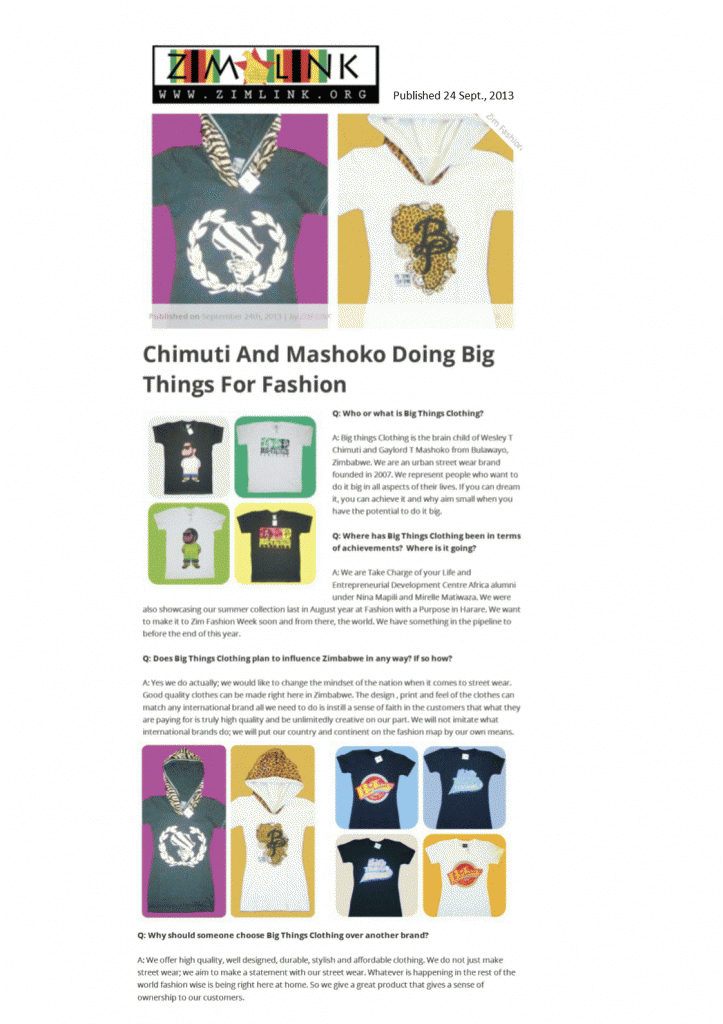
TCYB Workshop featured in the Times of Swaziland
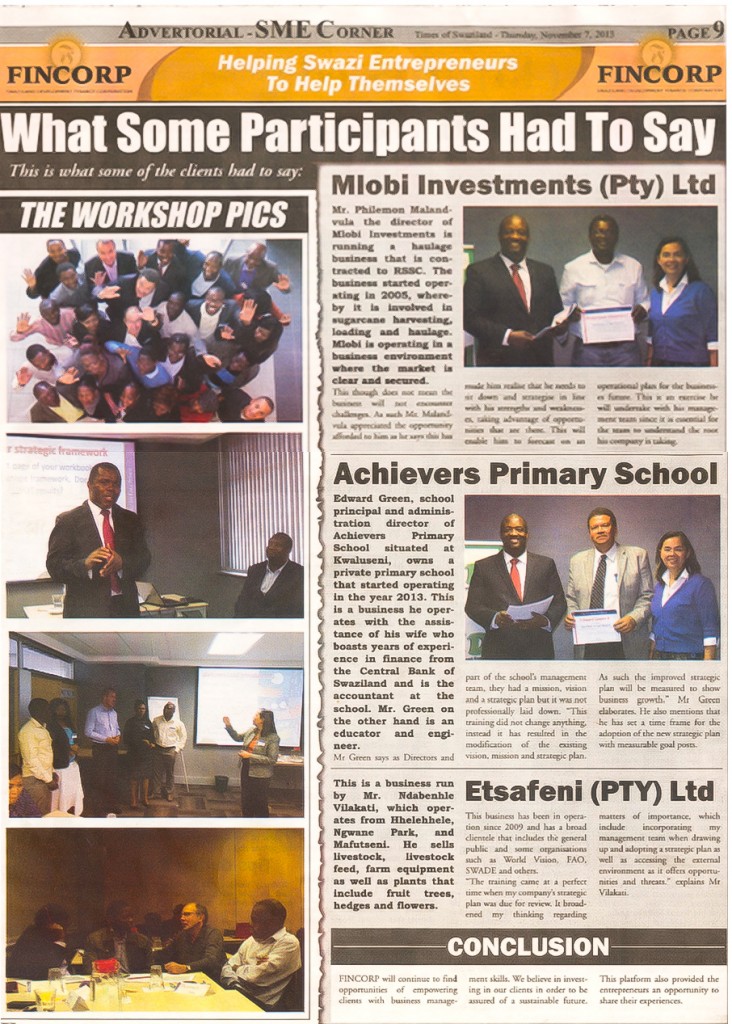
In August, 2013, REDI, a Swazi consulting company and long-time J2Ex partner held a “Take Charge of Your Business!” workshop for clients of Fincorp, a Swazi Development Finance Institution. The workshop was facilitated by REDI founder and MD Dr. Sikhomba Gumbi, with J2Ex Program Developer Nina Mapili and Lungi Mareka, a J2Ex facilitator from Namibia assisting. Special guests from Germany, both internationally experienced trainers, were also in attendance to learn more about the J2Ex Program: Klaus Schuler and Martin Holzmann.
SAFRI Sec. Gen. with J2Ex in Zimbabwe
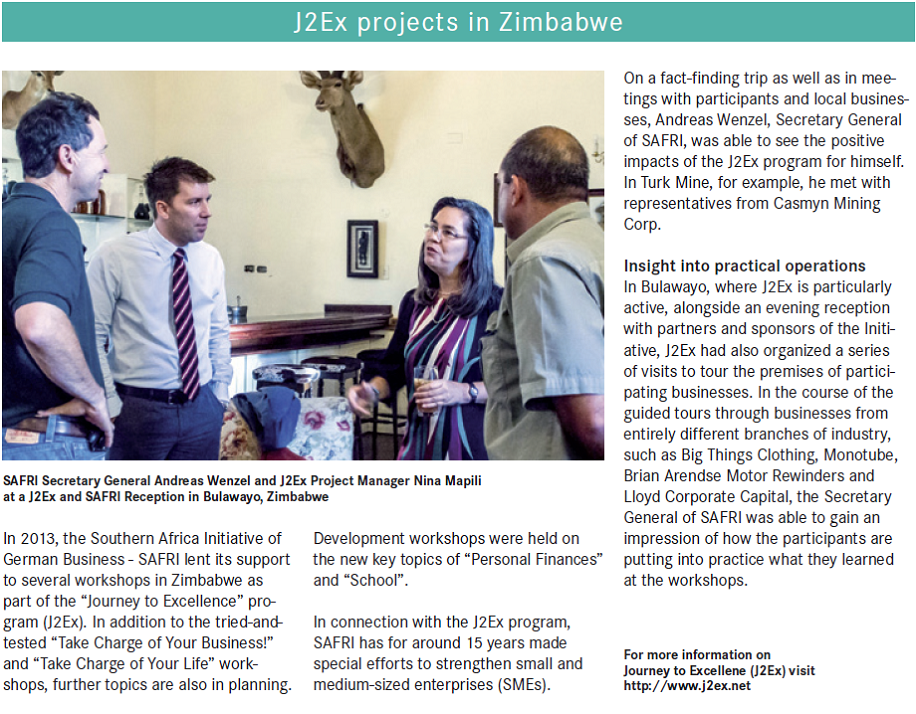
In February of 2013, SAFRI Secretary General Andreas Wenzel came to Bulawayo, Zimbabwe to meet local businesspeople, J2Ex partners, and J2Ex workshop participants.
J2Ex partner ISCAM achieves position in list of top 10 Francophone Business Schools in Africa
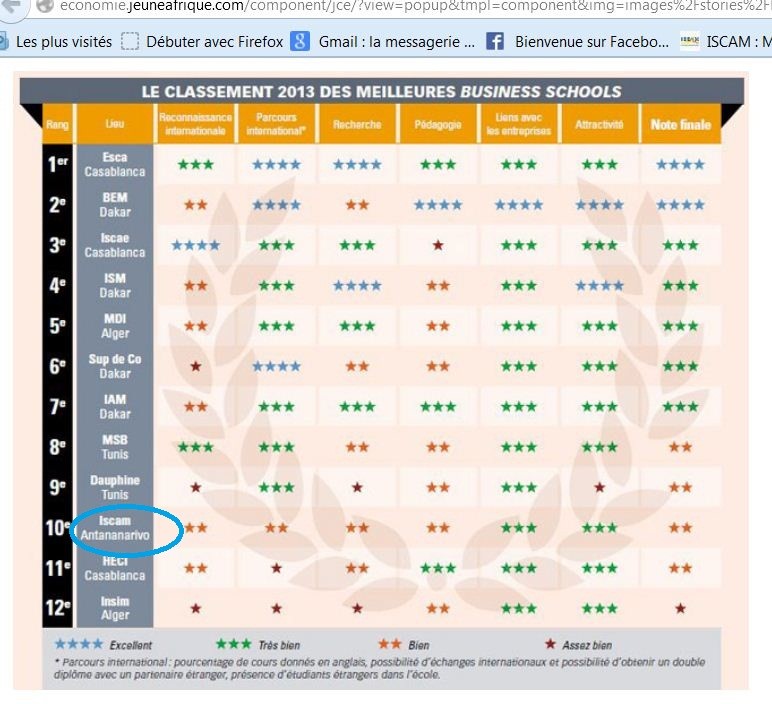
One of J2Ex’s partners in Madagascar is ISCAM, a business school in Antananarivo (http://www.iscam-mada.com/). ISCAM began its Journey to Excellence a number of years ago, and has been consequently pursuing its vision over the years. It recently achieved a spot in the ranking in the top 10 of business schools in francophone Africa. Congratulations to the entire team at ISCAM!
“Mindset” presentation on FirstStep.me
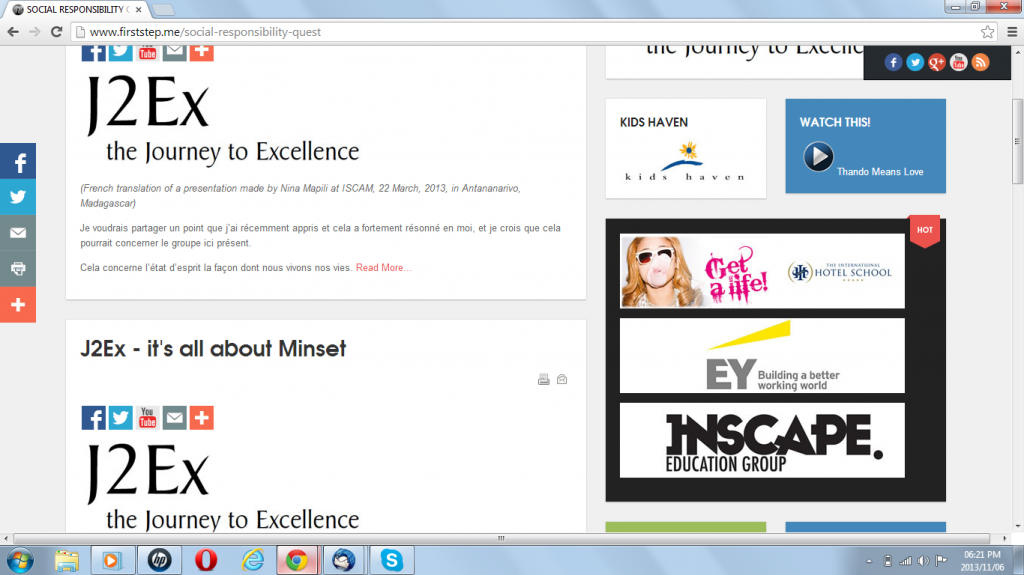
FirstStep.me is a great resource for young people searching for opportunities – worldwide! With a growth mindset they are sure to go far! Read the original post here: http://www.j2ex.net/news-and-blog/
J2Ex on FirstStep.me
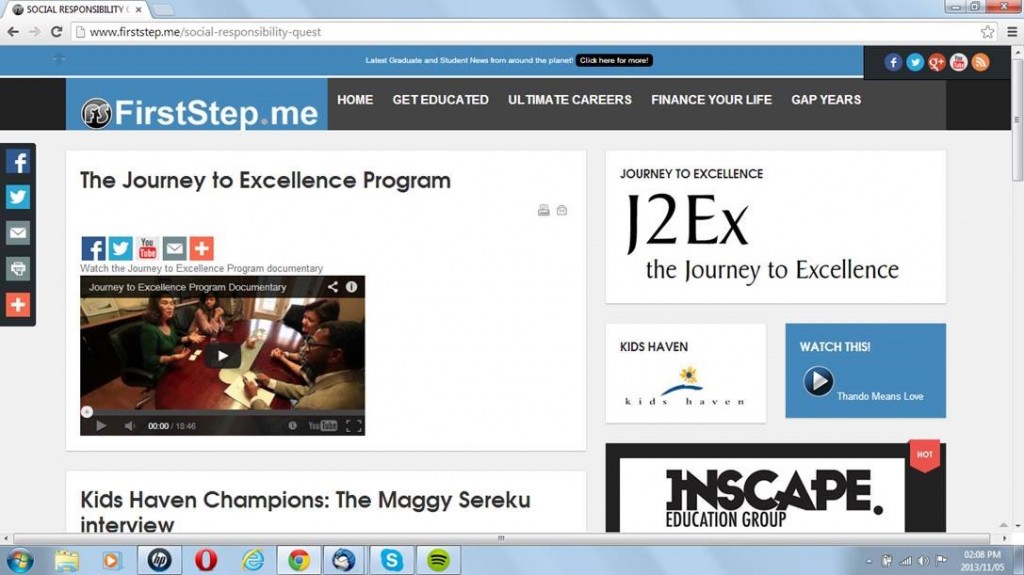
FirstStep.me is a website dedicated to helping young people get a good start in an interesting life. We’re glad to see them promoting J2Ex!
TCYL Facilitator Mirelle Matiwaza featured in SAFRI News
Mirelle Matiwaza, MD of EDCA, Bulawayo, Zimbabwe
Mirelle Matiwaza is a Journey to Excellence program “Take Charge of Your Life!” workshop facilitator who focuses on working with young people and with communities in rural areas of Zimbabwe.
TCYL Testimonials from Bulawayo, Zimbabwe
Connectivity problems have kept us from uploading workshop photos from May-June 2013, but fortunately the feedback compilation came through. Lead Facilitator Mirelle Matiwaza of EDCA and her assistants – Thulani Matiwaza, Khayalihle Moyo, Lennox Masukume – did a great job, according to the secondary school learners who participated!
Here are some of their comments:
Sichelesile N M Mpofu: “Thank you – thank you for giving us such a wonderful experience. You have put one of the first stones in the future we are building. To be honest I never really knew who I wanted to be until this workshop. You have helped us unleash our potential to keep chasing the target of excellence. At the end of the day we are better individuals, citizens and making the world be a better place – like you taught us “a candle foes not lose anything by lighting another candle” we will surely pass on the knowledge. God bless!!”
Thandeka Mpofu: “Thank you so much for such an experience with Mirelle Matiwaza and Thulani Matiwaza and to LUT club. I now have a mission, vision and an action plan. Through envisioning my future, I realised many areas of improvement. I am making my life and Taking Charge of my Life!”
Kelvin Bembe: “I thank the founders and facilitators for such a workshop. The workshop made me realise how to plan out my future. Plan for your future, vision, mission statement, values, stakeholders!”
Tryphine T Ncube: “Thank you very much for giving us a direction in life and teaching us that we have the potential to change not only our lives but the world also. Thank you for boosting my confidence.”
Arnold Moyo: “I would like to thank the developers for this opportunity. It has inspired me and has helped me live up to my potential. It has made me realise that I can turn nothing into something and that something into somethings which I give back or share with others. It would be an honor to work with others doing this project – I wish to be a potential lead facilitator.”
Mlanduli Melusi Ncube: “The program made me understand where I am suppose to go in life. I am a sharper iron and am now in a better position to face life and its challenges. Thanks to J2Ex!”
Grace Nleya: “In order to have a prosperous future you must have a vision and a mission, a goal and a strategic plan. Its never too late to make the right choices and decisions.”
As always, these things are possible thanks to partners and sponsors:
Local Partner: The workshop was held in cooperation with Lead Us Today, an NGO in Bulawayo that works with secondary school learners. See: http://www.leadustoday.org/.
Sponsors: SAFRI, the Southern Africa Initiative of German Business (www.safri.de), and a Rotary Club from Germany.
L’état d’esprit/ La façon de penser/ Fomba fisainana
(French translation of a presentation made by Nina Mapili at ISCAM, 22 March, 2013, in Antananarivo, Madagascar)
Je voudrais partager un point que j’ai récemment appris et cela a fortement résonné en moi, et je crois que cela pourrait concerner le groupe ici présent.
Cela concerne l’état d’esprit la façon dont nous vivons nos vies.
Beaucoup de gens pensent que vous êtes définis par des caractéristiques à votre naissance : vous êtes intelligent, talentueux, vous avez de très bons caractères – ou bien le contraire – et vous ne pouvez rien faire pour changer cela.
Dans son livre publié en 2006 intitulé « Mindset : the New Psychology of Success » ( L’Etat d’Esprit : La Nouvelle Psychologie du Succes), Prof. Carol Dweck de l’Université Standford écrit, cependant, que la recherche des 20 dernières années montre que même si vous avez un don spécial génétiquement, « les gens ont des capacités pour une formation continue et un développement du cerveau plus que ce nous pensons … » ( Mindset, p.10)
Elle souligne également, « La vue que vous vous adoptez profondément affecte la voie dont vous menez votre vie. Cela peut déterminer ou la personne que vous voulez être ou l’accomplissement des choses que vous valorisez » ( Mindset, p.10)
La recherche du Prof. Dweck indique qu’il y a 2 types d’Etat d’Esprit : l’état d’esprit fixe et en croissance.
Si vous pensez que vos qualités sont fixes, si vous avez un état d’esprit fixe, vous aurez continuellement besoin de faire votre preuve ; à prouver votre propre image. Toute situation par rapport à ce que vous ressentez, de votre apparence, relative à votre perception fixée sur vous-même. « Est-ce que vous paraîtrez comme un gagnant … ou un perdant ? »
Contrairement à cela, une personne avec un état d’esprit en croissance perçoit les cartes qu’il a en main – le don génétique – comme simplement le point de départ pour le développement. Une personne avec un état d’esprit croissant croit que « tout le monde peut changer et croit à travers la pratique et l’expérience ». (Mindset, p.11)
Ce n’est pas tout le monde qui peut devenir un Einstein, mais avec les années de « passion, labeur et d’entrainement » beaucoup, beaucoup de choses sont possibles !
Qu’en est – il de vous ?
Investissez-vous beaucoup d’énergie pour créer, à donner de l’éclat et protéger une image spéciale de vous-même ? (« Je suis intelligent, talentueux, infaillible…, »)
Évitez-vous des situations qui peuvent compromettre votre image à un risque ? En d’autres termes, là où vous pouvez perdre ?
Ce sont tous des caractéristiques de l’état d’esprit fixé.
Sinon, considérez-vous la vie comme un voyage, avec des défis excitants – et des opportunités pour apprendre et améliorer ?
Faites vous des tâches représentants le challenge – des objectifs élevés – pour vous-même ? Est-ce que cela vous demande le maximum de votre capacité que vous ne pourriez pas réaliser, malgré votre meilleur effort ?
Selon Prof Dweck, « La passion pour travailler au maximum de vos capacités et en se fixant à cela, même (ou spécialement) lorsque tout ne va pas bien, est une caractéristique de la croissance de l’état d’esprit. »
Ce qui est intéressant, la recherche montre que les personnes ayant cet état d’esprit toujours en croissance, sont plus exactement conscientes de leurs propres forces et faiblesses que ceux avec des états d’esprits fixes.
Que je me fasse bien comprendre ; certain peuvent aller loin avec un état d’esprit fixe. Il y a même une « maladie » associée avec cela : « la maladie DG ». Beaucoup d’entre vous sont, ou aspirent à devenir un Directeur Général. Que pensez-vous être les symptômes de cette maladie ?
La maladie de ces gens consiste surtout à leur besoin d’être vu en tant que personne qui sait tout et qui est parfait (plus intelligents que les autres). Ils veulent être idolâtrés ; ils ne tolèrent pas les gens qui connaissent plus qu’eux. Et si quelque chose ne se passe pas bien, c’est clair que c’était la faute à quelqu’un d’autre – la défaite ne sera certainement pas attribuée à leur manque d’application !
Par ailleurs, il y a des Directeurs qui ont cet état d’esprit croissant. Ce sont les gens qui travaillent très dure pour atteindre leurs objectifs. Ils s’entourent d’autres personnes ayant cet état d’esprit croissant, et ils investissent à faire développer ces gens qui les entourent. Les directeurs ayant un état d’esprit croissant sont ceux qui mettent en marche des plans audacieux et visionnaires que ceux qui sont avec des états d’esprit fixe. La peur de faire une erreur ne leur retient pas si bien que celui – ci sera vu directement comme en ligne.
Quel type pensez-vous être efficace ? Quel type êtes – vous ? Ou quel type seriez-vous ?
Pensez vous que avez un état d’esprit fixe, mais vous avez des raisons de croire que la croissance de l’état d’esprit pourrait vous servir en mieux ? Si c’est le cas, j’ai une bonne nouvelle pour vous ! Vous pouvez faire le défi !
Prof. Dweck, initialement une personne avec un état d’esprit fixe qui avait l’habitude d’éviter des opportunités qui pourraient entraîner un échec, disait qu’elle avait changé – pour le meilleur. En même temps, elle a noté que le changement entraîne un dur labeur et un dévouement.
Pourquoi est – ce que je parle d’état d’esprit ? Qu’est ce que cela a à voir avec le Voyage vers l’Excellence – le cadre dans lequel beaucoup d’entre vous me connaissent ?
Avant de lire le livre de Prof. Dweck, je savais que beaucoup de points dans le Voyage vers l’Excellence avait beaucoup à voir avec l’état d’esprit. Nous parlons d’aider les gens – individus et des équipes de management – pour développer un « état d’esprit entrepreneurial ». Le séminaire de « Prenez en Charge votre Vie » atteignent spécialement « les gens qui veulent entreprendre leur vie ».
Qu’est ce qu’une personne entreprenante ? Je peux comprendre qu’une personne avec un état d’esprit entreprenant est celui qui est proactif, celui qui voit activement les opportunités, et utilisent ainsi ces forces et considérer en tant qu’avantage. Cela marchera mieux, bien sur, si la personne comprend bien ses forces et ses faiblesses – tel que les gens avec un état d’esprit croissant le sont.
Une personne entreprenante est une personne orientée objectif, voulant prendre des risques ; il ou elle sera capable de surmonter des revers, les utiliser en tant qu’opportunités pour croître, non pas des menaces pour leur propre image.
Je pense que c’est une autre façon pour définir un personne orientée croissance.
Et bien sur cet état d’esprit peut s’appliquer non seulement pour une personne mais aussi à une organisation. Dans le programme Voyage vers l’Excellence, nous parlons beaucout de « amélioration continue ». Dans tous les bas de page de tous les manuels il est mentionné : « L’Excellence est une cible mouvante ! »
Je pense que vous êtes ici aujourd’hui parce que vous avez un état d’esprit croissant. Vous avez décidé de donner votre maximum et de vous améliorer. Vous aviez probablement des revers en chemin. Mais maintenant que vous êtes présents ici, vous avez certainement surpassé ces revers.
Mon défi pour vous est : continuez à faire votre maximum ! Gardez vos objectifs en tête, voyez les opportunités pour croître et améliorer. La vie est un Voyage, faites – le !
Mindset
– a presentation made by J2Ex Program Developer Nina E. Mapili on the occasion of the joint graduation and TCYB certificate presentation ceremony at ISCAM, Antananarivo, Madagascar, 22 March, 2013.
“I’d like to share some things I learned recently that resonated strongly with me, and that I believe are relevant to a group like this.
It’s all about mindset – and about how we live our lives.
Many people believe that you are what you’re born with: you’re smart, talented, you have a great character – or the opposite – and you can’t do anything to change it.
In her 2006 book “Mindset: the New Psychology of Success”, Prof. Carol Dweck of Stanford University writes, however, that research over the last 20 years shows that though you have a specific genetic endowment, “people have more capacity for lifelong learning and brain development than ever thought…” (Mindset, p. 10)
Moreover, she emphasizes, “The view you adopt for yourself profoundly affects the way you lead your life. It can determine whether you become the person you want to be and whether you accomplish the things you value” (Mindset, p.10)
Prof. Dweck’s research indicates that there are 2 types of mindset: the fixed mindset, and the growth mindset.
If you believe your characteristics are fixed, if you have a fixed mindset, you feel the need to continually prove yourself, to validate your self-image. Every situation is evaluated in light of how you will feel, how you will look, relative to your fixed perception of yourself.
“Will I look like a winner… or a loser?”
In contrast, a person with a growth mindset sees the hand that he or she has been dealt – the genetic endowment – simply as the starting point for development. A person with a growth mindset understands “that everyone can change and grow through application and experience”. (Mindset, p. 11)
Not everyone can become an Einstein, but with years of “passion, toil and training” many, many things are possible!
How about you?
Do you invest a lot of energy in creating, polishing and protecting a specific image of yourself? (“I’m smart, talented, infallible…,”. )
Do you avoid situations that could put that image at risk? In other words in which you could fail?
These are all characteristics of a fixed mindset.
Alternatively, do you see life as a journey, with exciting challenges – and opportunities to learn and improve?
Do you set very challenging tasks – very high goals – for yourself? Do they require such a stretch that you may, despite making your very best effort, not achieve them?
As Prof Dweck says, “The passion for stretching yourself and sticking to it, even (or especially) when it’s not going well, is a hallmark of the growth mindset.”
Don’t get me wrong; one can go far in life with a fixed mindset. There is even a “sickness” associated with it: the “CEO disease”. Many of you are, or aspire to becoming, a CEO. What do you think are the symptoms of this malady?
People with the CEO disease need to be seen as all-knowing and perfect (so much smarter than all others). They want to be idolized; they don’t tolerate people who know more than they do. And if something goes wrong, it was clearly someone else’s fault – the failure can most certainly not be ascribed to their own lack of application!
On the other hand, there are CEOs with a growth mindset. These are people who work very hard to achieve their goals. They surround themselves with other growth mindset people, and they focus on developing them. Growth minded CEOs are more likely to make bold, visionary moves than those with fixed mindsets. Fear of making a mistake does not hold them back as much as it does someone who sees their image on the line.
What type do you think is more sustainably successful? What type are you? Or what type will you be?
Do you find that you have a fixed mindset, but suspect that a growth mindset would probably serve you better? If so, I have good news for you! You can change!
Prof. Dweck, initially a fixed mindset person who used to avoid opportunities if they could entail failure, says that she has changed – for the better. At the same time, she notes that the change entails hard work and dedication.
Why do I talk about mindset? What does it have to do with the Journey to Excellence – the framework within which many of you know me?
Before I read Prof. Dweck’s book, I knew that much of what the Journey to Excellence was about had to do with mindset. We speak of helping people – individuals and management teams – to develop an “entrepreneurial mindset”. The “Take Charge of Your Life!” workshops specifically target “people wanting to lead an enterprising life”.
What’s an enterprising person? Well, I understand a person with an enterprising mindset to be one who is pro-active, who actively looks for opportunities, and then uses their strengths to take advantage of them. And by the way, research shows that people with a growth mindset have a more exact understanding of their own strengths and weaknesses than those with fixed mindsets. Think of the consequences!
An enterprising person is goal oriented, willing to take risks; he or she is able to move beyond setbacks, using them as opportunities to grow, not threats to their self-image.
In my view, that is another way to define a growth-oriented person.
And of course this mindset can apply not only to a person, but also to an organization. In the Journey to Excellence program, we speak a lot about “continuous improvement”. On the bottom of every workbook page it says: “Excellence is a moving target!”
I strongly suspect that you are here today because you have a growth mindset. You have decided to stretch and improve yourself. You probably had some setbacks along the way. But since you are here, you must have overcome them.
So my challenge to you is: continue to stretch yourselves! Keeping your goals in mind, look for opportunities to grow and improve. Life is a Journey, make the most of it!”
J2Ex Case Studies
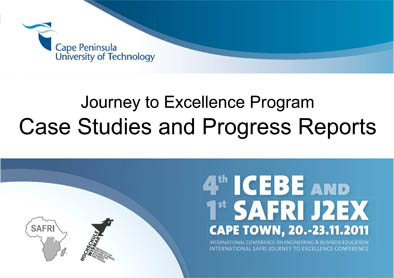 Read case studies to learn about how the J2Ex program has worked for various people and organisations: SAFRI & J2Ex Case Studies and Progress Reports FINAL
Read case studies to learn about how the J2Ex program has worked for various people and organisations: SAFRI & J2Ex Case Studies and Progress Reports FINAL
Cecilia Gaolathe, MD of The Dream Centre, Gaborone, Botswana
Cecilia Gaolathe, MD of the Dream Centre, followed her passion for children with disabilities when she founded The Dream Centre in Gaborone, Botswana. Following a Journey to Excellence (J2Ex) Program “Take Charge of Your Business!” (TCYB) workshop, she began professionalising the way she managed the business – learning to “strike a balance” that enabled her to sustainably follow the passion.
Journey to Excellence Video
In the J2Ex video, program participants and partners speak of their experiences.
Blast from the past – 1999 SAFRI In Contact Newsletter
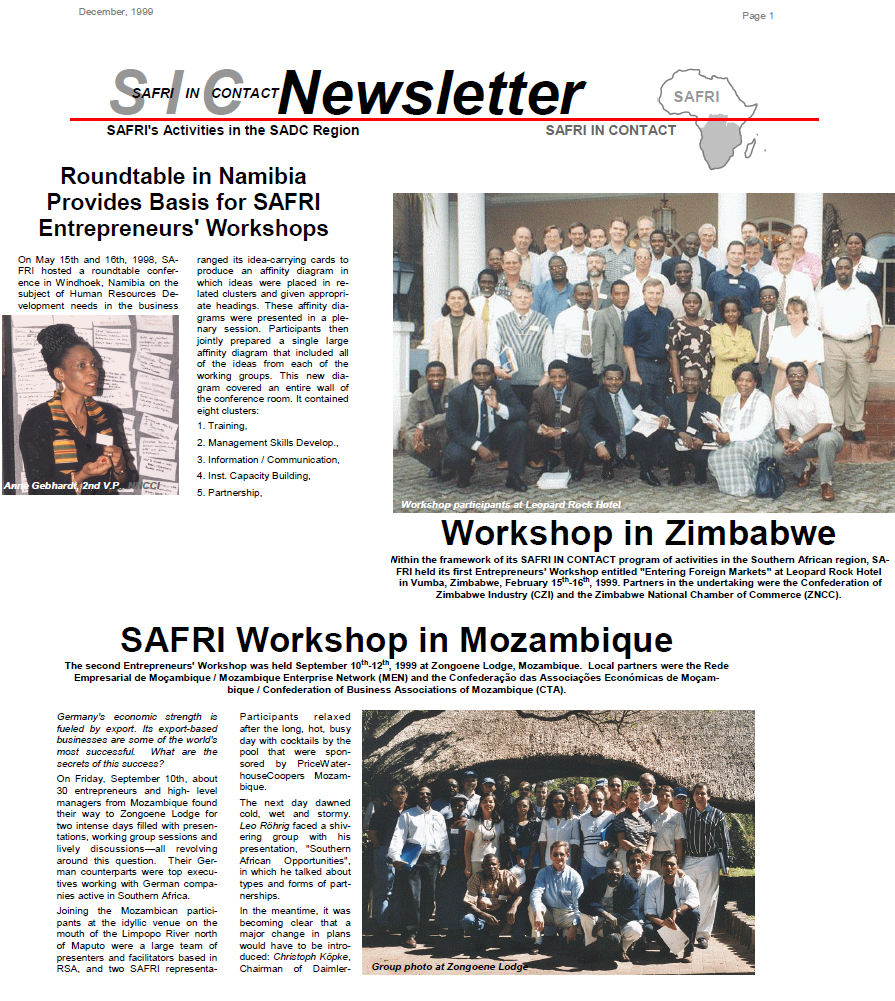 The SAFRI In Contact 1999 Newsletter documents – among other things – the beginnings of Nina Mapili’s work with SAFRI. This is where the J2Ex program has its roots. Check out the whole SIC Newsletter (link above) to read in detail.
The SAFRI In Contact 1999 Newsletter documents – among other things – the beginnings of Nina Mapili’s work with SAFRI. This is where the J2Ex program has its roots. Check out the whole SIC Newsletter (link above) to read in detail.
TCYB / TCYP Facilitator training in SAFRI News
Themba Nkomo, MD, Lloyd Corporate Capital, Zimbabwe
Themba Nkomo, Managing Director of Lloyd Corporate Capital (Pvt) Ltd., talks about his Journey.
The Swazi Observer: J2Ex coming to Swaziland
Eddie Kaluwa, MD, Combine Cargo Malawi Limited
MD Eddie Kaluwa talks about how Combine cargo Malawi Limited has grown on its Journey to Excellence.
Fela Razafiarison, TCYL Facilitator from Madagascar, featured in SAFRI News
La formation Take Charge of Business est de retour !
La formation Take Charge of Business est de retour !
Reservée aux cadres supérieurs, la formation internationale TCYB se tiendra de noveau du 20 au 22 mars à la Résidence Ankerana.
Au programme : redynamisation de votre business !!! Ne la ratez sous aucun pretexte ! 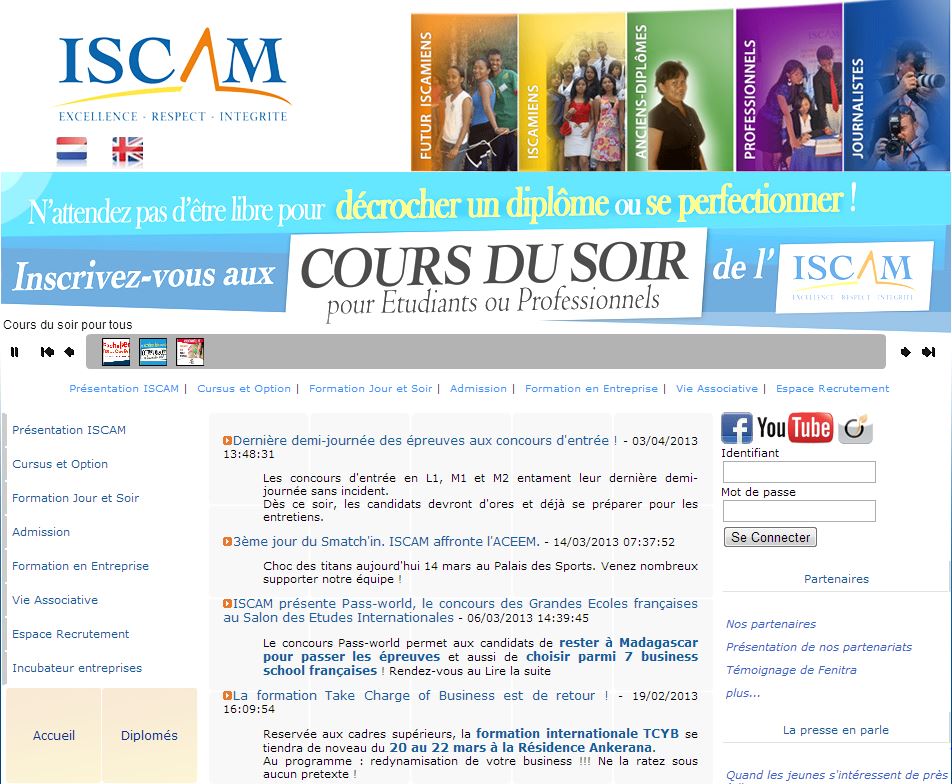
REDI is continuing its Journey to Excellence
REDI, Mbabane, Swaziland-based the Regional Excellence and Development Initiative, is poised to ramp up its involvement with the J2Ex Program.
Interview with J2Ex Developer Nina Mapili on Firststep.me
J2Ex Program Developer Nina Mapili was interviewed on FirstStep.me, a website for young people:
“I understand personal empowerment to be the process of giving a person the ability, the power, to “take charge of their life” – to be able to responsibly and independently define and pursue their personal vision.” –Nina Mapili founder of Journey 2 Excellence (J2Ex)
__________________________________________________________
Where on the planet are you currently located? I started this list of questions in Madagascar, continued in South Africa, and finished in Germany (where I live).
Your career has seen you travel the planet and currently you head up a project called the Journey to Excellence, tell us more? I began working with entrepreneurs, businesses, organisations, and individuals in southern Africa in 1997 as a consultant to SAFRI, the Southern Africa Initiative of German Business, a German B2B initiative. The Journey to Excellence (J2Ex) program grew out of this engagement, along with additional factors such as my experience as the Course Director of Germany’s first international English language Masters program. I also have degrees in architecture from the US and Germany, and am a believer in lifelong learning.
Though my work in Africa began with a focus on organisational and business excellence, and targeted fairly well established businesses – with the goal of helping them become more competitive – over time it expanded with offerings targeting less “sophisticated” businesses and organisations, and the people within them. These days I work mostly in the latter area, specifically offering, and developing new facilitators for, workshops called “Take Charge of Your Business!” (TCYB) and “Take Charge of Your Life!” (TCYL). TCYB helps management teams develop strategic frameworks for their business, and develop action plans to implement them. TCYL does the same for an individual – a task that in many ways is even more challenging than for a business.
With TCYL, we target “people wanting to lead an enterprising life”. To me, this means a person who wants to be proactive in shaping the path their life takes, as opposed to someone who just “goes with the flow”. (FirstStep.me says from Architect to real life hero – awesome!)
You work extensively in African and developing regions, what are the key issues to make these regions stronger and more stable? The word “empowerment” is way overused, and often misused, but I’ll define it and use it anyway. I understand personal empowerment to be the process of giving a person the ability, the power, to “take charge of their life” – to be able to responsibly and independently define and pursue their personal vision. (Too often people confuse the word with “entitlement”, a mentality that is at the core of many of the region’s problems.)
So what does that mean in this context? It means that people need to take personal responsibility for their lives and their futures, not simply cede this responsibility to governments, chiefs, parents, or any others who might come along. This will strengthen Africa and other developing regions. Of course, this also implies good education for all, not just for a small elite!
Any crazy or out the box adventures that you have had with The Journey to Excellence program? My day-to-day would be pretty out of the box for many, what shall I list?
– Recently I had lemurs jump on my head in Madagascar while filming the Journey to Excellence video. (FirstStep.me says see picture above!)
– I had the chance to meet a fascinating assortment of people – from farmers in mud huts to presidents in palaces – from Madagascar to Togo (15 African countries), many European countries, some in Asia, the US… Next week I’ll be talking about the J2Ex program in Vietnam!
– I have been deep underground in mines, worked with a huge assortment of businesses and organisations, and – after hours – bungee jumped off bridges, flown with microlight aircrafts, and watched all sorts of wildlife in the bush…
Where do you see the program in 5 years time? I see dozens of independent J2Ex facilitators taking the program to the next level by reaching out to more varied groups of participants. As a result, I see thousands of people, businesses and organisations increasingly and successfully “Taking Charge”!
At present, for example, workshops can be presented in English, Ndebele, Shona and French. We have facilitators and partners reaching out to small and medium businesses, entrepreneurs, youth, employees, children. All of this primarily, but not only, in urban areas. That leaves a lot of room for expansion!
In terms of young individuals looking to venture into developing countries through various internship programs and NGO setups, what advice do you have for them? Go for it! But remember: keep an open mind, and be ready to challenge your preconceptions.
Your average day is not average at all! How do you manage your hectic schedule and do you kick start you day with a cup of coffee? When I’m home, I start the day with a really good cup of tea. When I travel, I try to do the same. If that is not possible, I resort to coffee.
Prioritize, systematize, focus, delegate… and work as smart as possible (while also working really hard). Of course it helps that I am highly motivated, since I see that what I do has a positive impact on individual’s lives.
If you could name your own planet what would you call it? When I said recently that I was “off to look for lemurs”, one of my friends replied “…that sounds like a new planet”. However the lemurs were really easy to find, so I thought “No, not a good option. A planet should be named after something more elusive.” This got me thinking about animal-related names. Between flights on the way home from Madagascar recently, I visited a botanical garden in South Africa. There I hiked along a special dassie path. The path was long, the day was hot, and no dassies were in sight – beyond a quick shadow seen out the corner of my eye . So, I thought, “is this the name for a new planet? Something suspected but not seen?” As a Trekkie, I take such questions seriously!
However, after the long and fruitless trek, just before the exit gate, I came upon a patch of grass just covered with the critters (who, by the way, though they look like overgrown guinea pigs, are apparently the African elephant’s closest living relative). Too easy after all therefore not a good name. So for the moment, I’m stumped! Maybe I would just call it “Home”. (The FirstStep.me team raises eyebrows but smiles at the same time!)
Words of advice for the youth of the planet? Mark Twain is credited with having said: “Twenty years from now you will be more disappointed by the things you didn’t do than by the ones you did. So throw off the bowlines. Sail away from the safe harbor. Catch the trade winds in your sails. Explore. Dream. Discover.”
I’d add Joel Barker’s words: “Vision without action is merely a dream. Action without vision just passes time. Vision with action can change the world.”, and then challenge young people to go out and change the world – for the better.
You can find out more about the Journey to Excellence (J2Ex) program on their Facebook!
